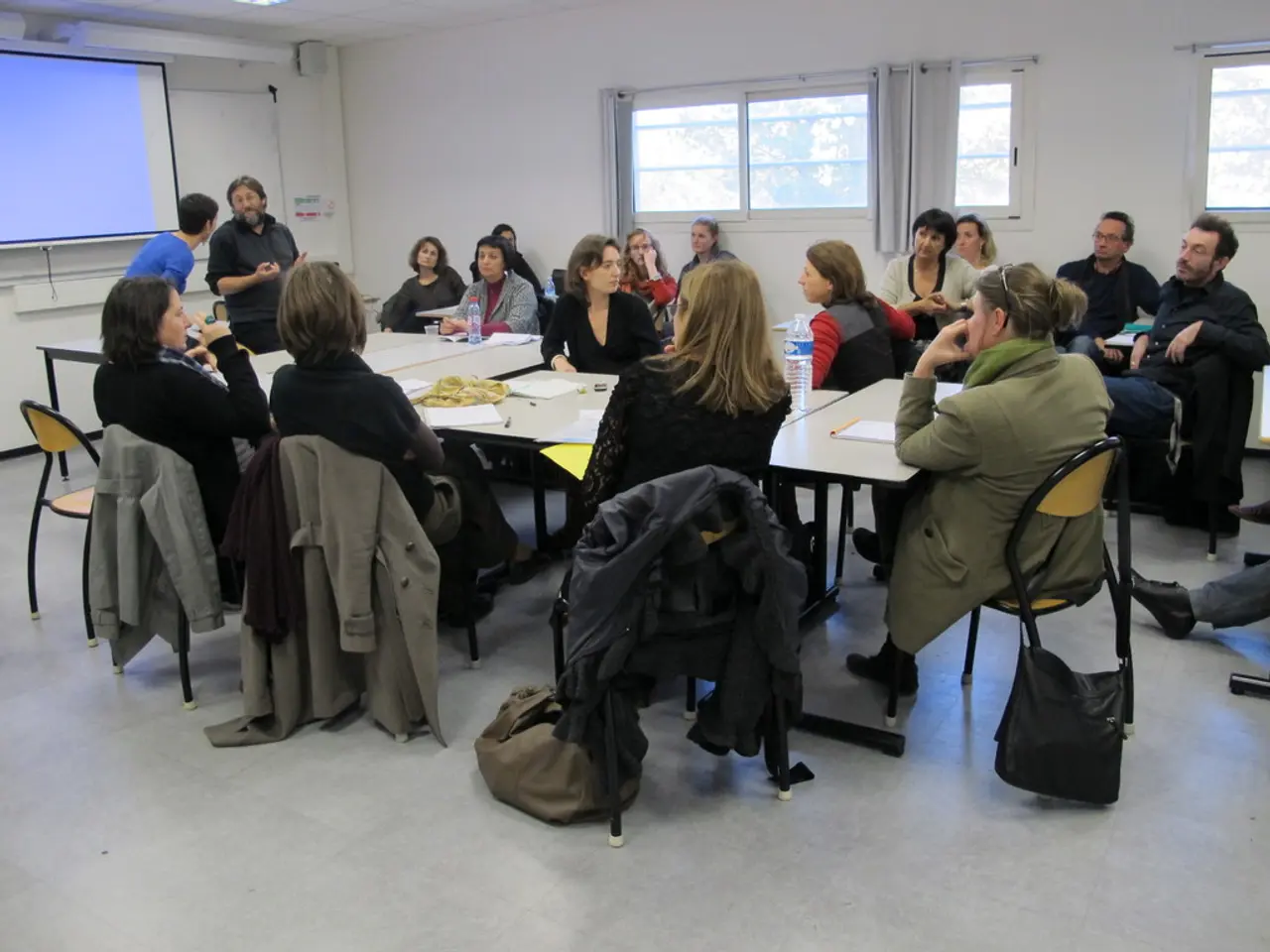Strategies for Forming and Maintaining Adult Relationships: A Guide to Building Strong Connections
Building and maintaining friendships as an adult is both rewarding and essential for a fulfilling life. Here are some strategies to help you form and sustain meaningful connections that contribute to emotional well-being and social connectedness.
Follow Through on Promises Consistency in your actions is crucial for building trust and reinforcing adult friendships. Be dependable and honest to foster strong connections and ensure the longevity of relationships.
Seek Opportunities Aligning with Your Interests Say yes more often to social invitations, join groups, clubs, or classes related to your hobbies or interests, and volunteer for causes you care about to meet like-minded people. Being consistent in your attendance at social gatherings or regular meetups helps friendships grow because repeated interactions build reliability and trust.
Be Approachable and Open Being open and approachable, such as smiling and engaging in small talk, can make it easier to form new friendships. Sharing interests and hobbies with others helps build meaningful connections.
Practice Active Listening and Empathy In conversational dynamics, showing genuine interest by asking thoughtful questions and practicing active listening—reflecting and sharing your own stories—builds emotional bonds. Active listening skills, empathy, and support are crucial for building strong, trusting relationships and fostering a deeper emotional connection.
Nurture Connections Over Time For maintaining friendships, regularly investing time through texting, calls, or in-person meetings reinforces bonds and makes friends feel valued, which supports sustained emotional connection and mental well-being. Making time for friends and scheduling regular meetups is essential for maintaining close friendships. Consistent communication is crucial for sustaining adult friendships over time.
Create New Experiences Together Engaging in new experiences with friends can deepen relationships and make your time together more enjoyable. Traveling together, exploring new places, or participating in group activities can create lasting memories and strengthen your social circle.
Celebrate Achievements Together Sharing in each other's successes enhances connections and builds a supportive friendship network. Offering help and support during challenging times fosters close friendships and demonstrates reliability.
Embrace Diversity Valuing diverse viewpoints enriches your understanding and enhances meaningful friendships. Learning and growing together by exploring different perspectives and experiences with your friends strengthens your social circle.
Friendships in adulthood provide emotional and psychological support, reducing the risk of mental health issues such as anxiety and depression. Research from the American Psychological Association and the University of Chicago supports the positive impact of adult friendships on mental health. Furthermore, a larger social circle can lead to a 40% reduction in the likelihood of premature death, according to a report from the University of California.
In today's digital age, social media can help maintain long-distance relationships and keep friends updated on each other's lives. Sharing life updates on social media platforms helps reinforce connections and sustain relationships.
In conclusion, building and maintaining friendships as an adult involves effort, commitment, and clear communication. Being approachable, consistent, and supportive are key elements in forming and sustaining adult friendships. By following these strategies, you can create and nurture a supportive network of friends that enhances your quality of life.
- Promoting personal growth and emotional well-being, seek opportunities that align with your interests, such as joining clubs or groups, volunteer work, or social gatherings, to connect with like-minded individuals.
- Committed to personal development and relationships, practice active listening and empathy to nurture emotional bonds and foster trust, ensuring the longevity of relationships.
- Acknowledging the importance of education-and-self-development, regular investment of time in friendships, through communication and shared experiences, can lead to improved lifestyle, mental health, and reduced risk of premature death.




